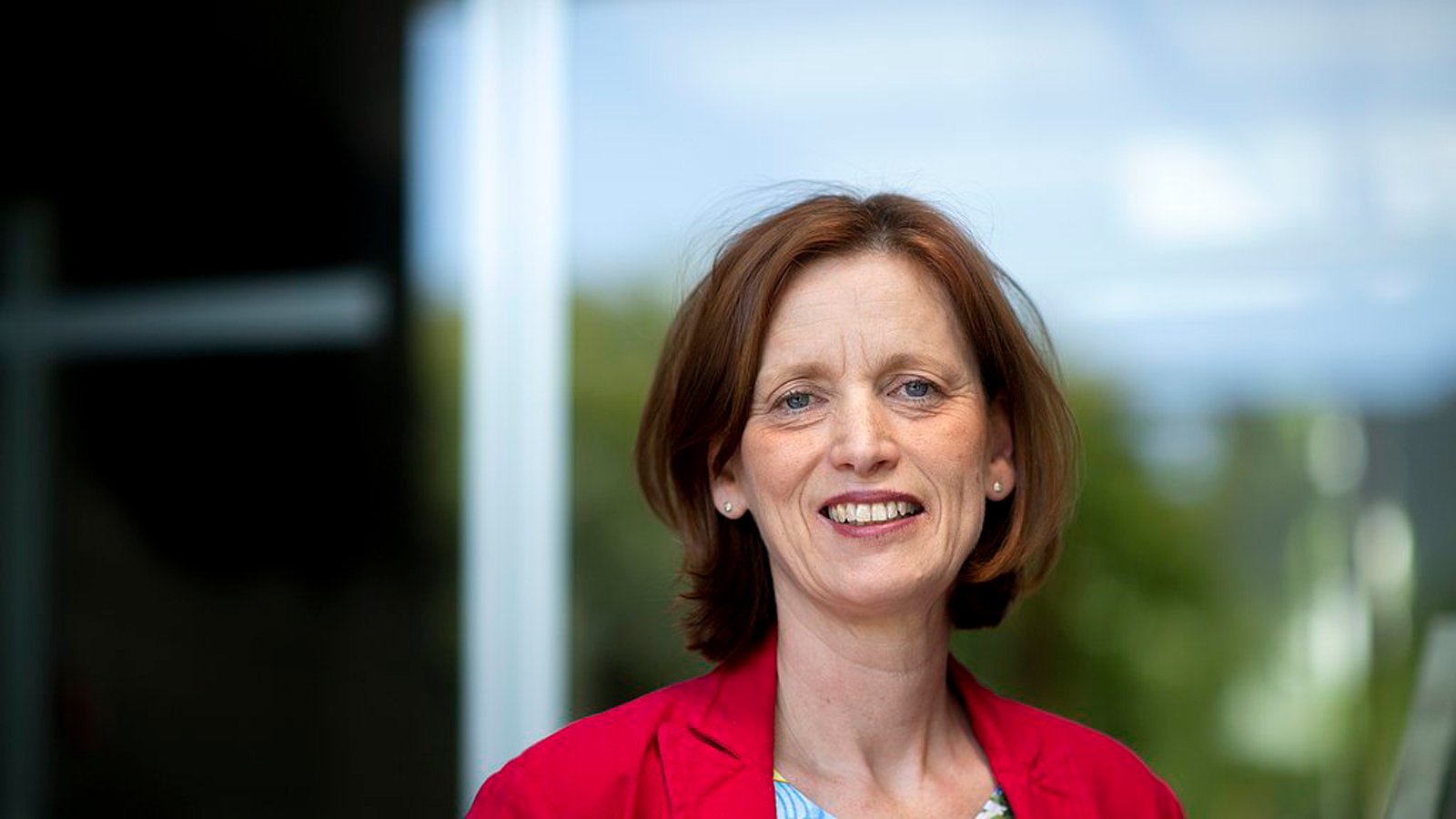“Schools must prepare children and young people for constant change…“
... and need support in that task, argues Karin Prien, President of the German Education Ministers’ Conference. In an opinion piece, she outlines how the German education system has to change in the future – and what role is played by initiatives such as the German School Award.
Our society is undergoing a profound, high-speed transformation process. Digitalization, the commitment to climate neutrality, and demographic change demand fundamental changes in all areas of life – changes go beyond purely technical progress and are leading to broad-based cultural and social change. The dynamics of change have been further accelerated by the pandemic, the Russian invasion of Ukraine, and its impact on energy supplies. Teaching and learning are also changing. It is the task of schools to prepare children and young people for a self-determined life in a changing digital society.
What future competencies, skills, and learning processes will be needed to survive in the digital world? How do we strengthen the resilience of children and young people so they can cope with crises better, and even see them as an opportunity? In recent times, the importance of stable mental health has become particularly obvious.
Key attributes of an education for the 21st century
The competencies of relevance to participating, contributing, shaping, and ultimately succeeding in 21st-century society and work environments encompass numerous skills and require a high degree of willingness to learn.
- What really matters in the field of learning and innovative skills are critical thinking and problem solving, communication and collaboration, creativity and innovation.
- Lifelong learning and the ability to deal with fast-moving technical developments, interdisciplinary media and IT competencies, as well as special, subject-specific IT know-how (i.e. digital competence) are required to sharpen the necessary skills.
- Professional and life skills are also required: Flexibility and adaptability, initiative and self-direction, social and intercultural interaction, productivity, and a sense of responsibility.
Many of these skills are also referred to as key attributes of an education for the 21st century. To convey these competencies, we need to develop our education systems from preschool to secondary schools and higher education to prepare children and young people for a lifetime of learning.
Digital pioneer spirit growing stronger
Our education systems needs a culture of digitality. It is all about enriching analog teaching-learning scenarios and methodical learning with digital processes and methods in a targeted manner and thus connecting the areas of competence.
In recent years, the pioneer spirit in the use of digital potentials has grown stronger. This has also been demonstrated by the German School Award, which honors schools that have impressed with innovative teaching.
The six quality areas assessed by the jury are now the generally recognized hallmarks of good school quality. I find it encouraging that the award-winning schools’ concepts are made available to all schools and that they are willing to share their know-how and experience.
I am very grateful to the foundations for their commitment. In order to sustainably strengthen the innovative power and capabilities of our education system, we need to have all stakeholders on board. That is why we are also dialoging closely with universities and the various research institutions to further develop schools.
Science needs the dialogue with practice
We must make sure that scientific research findings find their way into the classroom to support schools in their process of transforming into a school of the future.
It is important for school practitioners to be also involved in research projects so everyday school needs can be taken into account. Researchers can then dialog with teachers and test their concepts in schools to jointly determine what works in practice. This is the only way to generate relevant research results that can be used for ongoing development.
”We design successful education policy for a longer term than the familiar political periods of four or five years.”
In this context, Germany’s Federal Ministry of Education and Research is supporting the federal states by establishing Competence Centers for Digital and Digitally Supported Teaching in Schools and further Education Establishments. In cooperation with the federal states, this comprehensive research, innovation, and transfer project is aiming to improve digitization-related further training for teachers.
We are shaping a successful education policy that will last longer than the familiar political periods of four or five years. In doing so, we should focus on what really moves us forward: well-trained teachers who are experts in shaping learning processes and serve as role models for their students.
Because in the future, people will continue to be the focal point of good education.
On September 28, the German Chancellor Olaf Scholz will present the 2022 German School Award in Berlin. 15 schools have been selected by an expert jury for their exceptional performance in the quality areas of teaching quality, achievement, dealing with diversity, responsibility, school climate, school life and extracurricular partners, and school as a learning institution. Since 2006, the Robert Bosch Stiftung has been awarding the German School Award, together with the Heidehof Foundation. The concepts of the award-winning schools are subsequently made available to all German schools via the online platform Das Deutsche Schulportal.
You can watch the awards ceremony on 9/28-22 at 12:30 p.m. in the livestream here.

